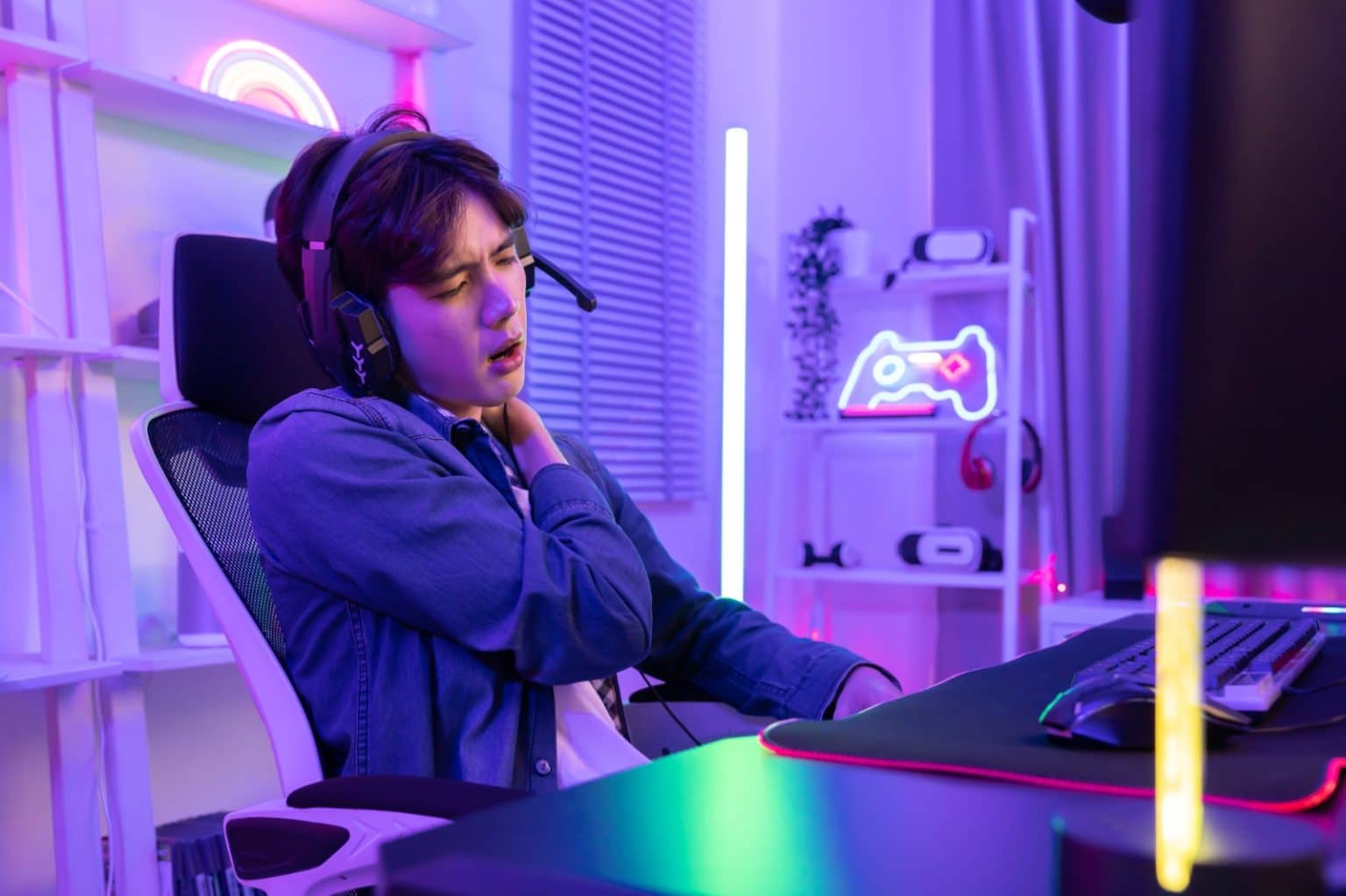As the summer holidays begin, gaming remains a popular pastime for teenagers and young adults. While the mental health impacts of gaming are often highlighted, the physical health issues associated with extended gaming sessions are frequently overlooked. Emre Aksu, a spokesperson for the online gaming platform 1337 Games, provides insights on how to mitigate common gaming-related health problems.
Tackling “Gamer Neck” and Poor Posture
“Gamer neck,” also known as “nerd neck,” results from poor posture when gaming. Leaning forward for prolonged periods can lead to an unnatural neck position, causing neck and back pain and stiffness that may persist even after gaming sessions.
Aksu suggests gamers should be mindful of their posture. Using an ergonomic gaming chair with a straight, high back can promote correct posture and comfort. Regular stretching, particularly every hour, can relieve stiffness and prevent further issues. Stretching the arms, neck, and back can make a significant difference.
Preventing Musculoskeletal Issues
Musculoskeletal issues, including carpal tunnel syndrome and repetitive strain injury, are prevalent among gamers. Carpal tunnel syndrome occurs when pressure is applied to the median nerve in the hand, leading to symptoms like numbness, tingling, and pain in the hands and fingers. It is crucial to prevent these conditions and seek immediate treatment if symptoms arise to avoid lasting damage.
For PC gamers, Aksu recommends elevating the wrists to be level with the keyboard and mouse to ensure proper circulation and prevent nerve entrapment. Using a small, soft cushion can aid in maintaining a comfortable wrist position. Console gamers can benefit from hand exercises, such as opening and closing the hand and bending the wrist in different directions to promote circulation.
Warming up and stretching the hands and wrists before and after gaming sessions can also help prevent musculoskeletal problems.
Addressing Eye Strain, Vision Problems, and Headaches
Extended screen time can cause eye strain, vision problems, and headaches, particularly for those prone to migraines. To counter these symptoms, Aksu recommends taking regular breaks using the 20-20-20 rule: every 20 minutes, take a 20-second break to look at something 20 feet away. Longer breaks of at least 15 minutes every hour can also help prevent significant eye problems.
Using a blue light filter on screens can reduce eye strain. Many devices now feature built-in blue light filters, but protective glass screens or blue light-filtering glasses are also effective alternatives.
Preventing Hearing Loss
Prolonged exposure to loud noises in video games, particularly action or fighting games, can lead to hearing loss. Aksu advises maintaining lower volume levels and using speakers instead of headphones when possible. If headphones are preferred, over-ear models are better than in-ear ones as they do not direct sound straight into the ear canal and typically offer better noise cancellation.
Even with over-ear headphones, keeping the volume below 50-60% of the maximum capacity is recommended. Most devices have noise level warnings; Aksu suggests not disabling these features to help protect your hearing.
Avoiding Obesity and Blood Clots
Sedentary behaviour increases the risk of obesity and blood clots. Taking breaks every 90 minutes to walk around can promote healthy blood flow and reduce these risks. A short five-minute walk can make a significant difference. Gamers should also avoid crossing their legs or tucking them underneath while playing, as these positions can restrict blood flow. Instead, they should stretch their legs out as much as possible.
Incorporating regular exercise into the daily routine is beneficial. A 30-minute brisk walk each day can significantly improve overall health.
Combating Dehydration
Gamers often become so engrossed in their games that they forget to stay hydrated. Aksu recommends keeping water or another drink nearby to prevent dehydration. Some gamers may limit fluid intake to avoid bathroom breaks, but this can lead to dehydration and other health issues. Regular breaks for hydration and stretching are essential.
Managing Fatigue and Insomnia
Late-night gaming sessions can lead to fatigue and insomnia. Playing late or right before bed can disrupt sleep schedules and make it difficult to unwind. To avoid this, Aksu suggests establishing a gaming routine. Limiting gaming hours and avoiding playing a few hours before bedtime can help ensure better sleep.
By sticking to a specific gaming schedule, gamers can enjoy their hobby while maintaining energy levels and minimising adverse health effects.
These expert tips from Emre Aksu highlight the importance of mindful gaming practices to ensure that players can continue enjoying their favourite games safely and healthily this summer.
For more information, visit https://www.1337.games/ .



